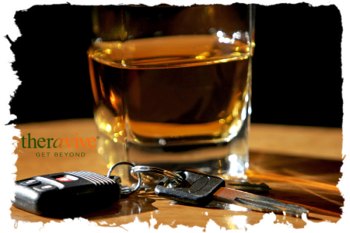 It's Friday or Saturday night. It has
been a long work week and one is looking forward to the weekend. A way to relax
or reward oneself for the hard work one has put in generally is associated with
a drink or two of an alcoholic beverage. No harm in that. The harm comes in
when one has become intoxicated from the amount of alcohol he or she has
consumed that night and decides to drive home under the influence. Alcohol
begins to influence the human body at a BAC of 0.02 percent (Holzmueller,
2015). Uber is an alternative to driving
home or anywhere for that fact under the influence; however Uber is unable to
make a dent in drunk driving. Therefore another alternative is needed.
It's Friday or Saturday night. It has
been a long work week and one is looking forward to the weekend. A way to relax
or reward oneself for the hard work one has put in generally is associated with
a drink or two of an alcoholic beverage. No harm in that. The harm comes in
when one has become intoxicated from the amount of alcohol he or she has
consumed that night and decides to drive home under the influence. Alcohol
begins to influence the human body at a BAC of 0.02 percent (Holzmueller,
2015). Uber is an alternative to driving
home or anywhere for that fact under the influence; however Uber is unable to
make a dent in drunk driving. Therefore another alternative is needed.
Uber is car service in the spirt of a
taxi, with lower rates. On July 29, 2016, an article was published revealing that
Uber has been unsuccessful in deterring the number of alcohol related fatalities
of drunk drivers (Kelly, 2016). According
to Holzmueller, (2015) “The most common BAC level is 0.17 with regards to fatal
car crashes related to alcohol. Every month millions of individuals drive under
the influence of alcohol in which Uber, who has thousands of drivers and
growing, it’s unable to combat for that size of drivers.
Intentions
An element of personal responsible
begins with intentions. Is it the person’s intention to go out and become
intoxicated or was it not their attentions to get intoxicated. It may seem that
they are one in the same, yet they are not. An individual with the mind set of
going out and getting drunk is making a conscious decision to take their vehicle
as a transport to a venue or a place where alcohol is going to be served. He or
she will utilize that opportunity and consume enough alcohol to obtain a buzz
and then some, which usually ends up being intoxicated.
An individual with the mind set of going
to a venue or place where alcohol is served and only plans to consume one or
two, however ended up getting intoxicated from that amount or ended up having more
than he or she planned to did not make a conscious to take they vehicle.
Now, regardless of how each of these two
scenarios came to be, the results are the same, both are intoxicated and it’s
time to go home. The individual that knew that he or she was going to get intoxicated
is very less likely to utilize alternatives means of getting home such as an
Uber, Taxi or designated driver. The reason is because if that was the case,
they would have set those alternatives up before he or she begin their night.
The individual that did not plan to go
out and get intoxicated is more likely to utilize an alternative means of getting
home with their safety in mind. However, because they did not intended to
become intoxicated they may be more likely to drive themselves as well.
Therefore, it doesn’t matter if the person intended or did not intended to
become intoxicated, the ending results are the same. Kelly (2015) presented
that individuals that are intoxicated are less likely to make rational
decisions. What’s the solution?
Barriers Removed
A common theme that is present when
individuals are intoxicated is that they do not want to leave there car. If an
individual is intoxicated and utilizes Uber or a taxi or another person drives
them home. The element of their car not being present at home when they sober
up comes into question. He or she would have to contact another car service to
pick them up and take them back to their car and then drive back home.
Depending on the amount of alcohol consumed, even the next week is not safe.
Therefore, may individuals who are intoxicated opt out of using an alternative
to getting home. Holzmueller (2015) emphasis that in 2013 of the 11,307 deaths
involved drivers who were intoxicated, all has BAC of 0.01 or higher.
The solution is utilizing a service called
Designated Driver. In Korea, (Chung, J., Joo, H. H., & Moon,
S., 2014) designated driver services has been around since the 1990s and
increase. Chung et al, (2014) states, “The designated driver service replaces
drunk driving by providing drunk drivers with rides using the drivers’ own
vehicles, thus allowing them to reach home with their own vehicles (p. 1545). Since
there existence there has been a decrease of alcohol related fatalities. This
approach will solve the solution of having the intoxicated person’s car being
left and presents it’s as a win/win for both parties.
Summary
Uber is a more affordable service to utilize
than a taxi instead of driving home under the influence of alcohol. Driving
under the influence of alcohol puts the driver and others on the road in harm’s
way. Stats have shown that BAC at 0.01 has resulted in fatal accidents.
Individuals that are intoxicated are less likely to think rational and utilize car
service. A solution presented is the designated driver service which a
designated driver will drive the intoxicated person home in their vehicle.
Evidence has shown this impacting alcohol related accidents, however personal responsibility
is to key because they intoxicated individual still have choice to contact them
or not.
References:
Chung, J., Joo, H. H., & Moon, S. (2014).
Designated Driver Service Availability and Its Effects on Drunk Driving
Behaviors. B.E. Journal of Economic Analysis &Policy, 14(4), 1543–1567.
Holzmueller, C. B. (2015). Drunk driving. Salem
Press Encyclopedia Of Health
Kelly, H. (2016). Uber doesn’t’ decrease
drunk driving, study says. CNN.com. Retrieved from http://money.cnn.com/2016/07/29/technology/uber-drunk-driving/index.html?iid=ob_homepage_tech_pool
About the Author

Henry M. Pittman
, MAHenry M. Pittman came into the field of counseling through substance use disorders in the fall of 1997. He was a substance abuse tech at a hospital in Houston, TX and what he saw motivated him to take all the counseling hours needed to become a substance abuse counselor in 1998. Since then he has pursed the required education and knowledge to become a master level counselor and therapist.
Office Location:
7807 Long Point Dr, Ste 215
Houston, Texas
77055
United States
Phone: 800-419-2568
Contact Henry M. Pittman
Professional Website:
www.therapeuticallc.com